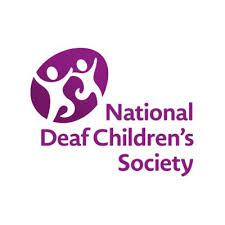Models of Specialist Services for Deaf Children and Young People
Models of provision in the UK
A Qualified Teacher of Deaf Children and Young People (QToD) is an experienced teacher with an additional mandatory qualification (MQ) in childhood deafness who has the skills, knowledge and expertise required to provide quality support to babies, deaf children, young people and their families from 0-25 in the home and in education settings (mainstream settings and those in specialist provisions).
In order to train as teachers of deaf pupils in schools or services, teachers must have qualified teacher status (QTS), or full recognition in Scotland, and have had some classroom experience before undertaking a MQ course. It is also possible, in England, to train with Qualified Teacher Learning and Skills (QTLS) but this may limit the age groups of children and young people (CYP) with whom you can work once trained. All QToDs must have special training and qualifications.
The premise of an effective QToD role is to share a depth of understanding of both the needs of deaf CYP and how to meet them. This specialist support focusses on two key outcomes as a route to social inclusion, ensuring all CYP have fair and optimised access to education and that all CYP have opportunities to develop their own agency, voice and independence. Achieving these outcomes requires inclusive practice such as:
- Family-centred practice
- Partnership working with educational professionals
- Multi-agency working with partners in health, social care and third sector organisations.
- Direct teaching
The role of the Qualified Teachers of Deaf Children and Young People (QToDs) is diverse. Some QToDs may be employed as
- a QToD in a School for the Deaf
- a QToD in a school-based resource provision
- an auditory implant/cochlear implant QToD
- A pre-school QToD
- A post 16 QToD
- A freelance QToD working as a Specialist Support Professional in higher education
Across the United Kingdom, a range of services exists. Models of provision vary from local authority to local authority. Possible models include:
Support Services
resource provision
Schools for the Deaf
The support available to deaf CYP within an individual local authority may come from a combination of the above models.
- Support Services
Peripatetic (or advisory) QToDs work for local authority advisory and support services for deaf CYP. They support deaf CYP who are integrated into early years, mainstream and special schools, colleges on an individual basis. An important part of their work is collaboration with classroom teachers who teach deaf CYP from day to day, and the management of support provided by teaching assistants (TAs) or CSWs (Communication Support Workers) who often accompany deaf CYP in lessons. Peripatetic teachers also visit parents of very young children at home to advise about the children’s development and to work with them as appropriate. They also support deaf children with other disabilities/needs.
Support Services generally comprise teams of peripatetic teachers with specialist qualifications ie QToDs, qualified teachers of vision impairment, qualified teachers of multisensory impairment/deafblindness, educational audiologists ie QToD with an additional qualification and experience in educational audiology and other staff such as teaching assistants.
These services work with deaf CYP from identification to 16+. They have a statutory duty to support CYP in local authority provision to school leaving age, sometimes older subject to each nation’s cope of practice/ statutory plans. They may have funding arrangements in place through the Learning and Skills Council (LSC) to support students at Further and Higher Education.
Some support services operate within one LA. Others work across one or more authorities on a contractual basis.
The size of the LA will have a significant influence on the number of teachers employed. In a large county authority for example, the service may comprise several area teams. On the other hand, a small unitary or borough authority may have only one or two QToDs.
Some Sensory Support Services will see resource bases and units as an integral part of the continuum of provision offered, with QToDs and support assistants working as part of a team operating within a common philosophical and operational framework and allowing for the most effective deployment of all resources. Others may delegate the provision management via a service level agreement.
The most common structures of these services are as follows:
- Support Service for deaf CYP A discrete team of staff with specialist qualifications in teaching deaf CYP, that may be managed by a QToD/Educational Audiologist.
- Sensory Service A discrete team of staff with specialist qualifications in teaching deaf and/or vision impaired CYP. A QToD or a QTVI/QTMSI may manage this team. In some instances the Head of Service may have a dual qualification. In some teams the structure allows for the head of service to have one specialism and for the deputy head of service to have the complementary qualification.
- Generic support services: “Inclusion Services” Support Services that have teams of teachers with a range of specialisms e.g. sensory, physical and language and communication. In these teams the head of service may have one specialism, other deputies may specialise in each of the other areas of need.
Role of Support Service Staff
Support service staff may provide support in the following areas:
- support to parents and carers
- In-service training for mainstream/special school staff
- contribution to the assessment and monitoring of educational needs
- development and implementation of teaching programmes
- advice re modification of curriculum materials
- provision of modified resources
- provision and management of specialist equipment
- specialist teaching and support
- support at transition across all phases
To receive this support pupils may not require a statement of special educational needs.
- Units/Resource Bases
Although known by many different names across the UK, a unit/resource base may be defined as specialist provision within a mainstream school. Some resource bases for deaf CYP may be attached to a special school catering for another primary need e.g. for learning difficulties
Specialist provision in these bases may include:
- Separate teaching area(s)
- QToDs
- Teaching assistants with experience/additional qualifications in working with deaf CYP
- Specialist equipment and resources
- Access to support from other agencies e.g. Speech and Language Therapy
According to individual need, pupils will receive specialist support in mainstream classes and spend some time in the base for individual and small group work.
In some LAs these bases are managed by the Head of Support Service for deaf children and the funding is retained centrally. In other LAs the funding is delegated to the school and the Head of the School manages the base.
In some services, the resource base is a fluid idea with resources moving with the CYP to and from locations, resources being fixed or moveable – both people and equipment. For some practitioners, the idea of a “unit” as a place with fixed resources set aside for the deaf child to return to does not accord with their view of best inclusive practice. However, a concrete definition of inclusion is yet to be provided by respective UK departments of education.
Where the funding is delegated, the most effective practice may be seen where the school and the support services maintain strong links.
To access this provision CYP will usually require a statutory plan.
- Schools for Deaf CYP
These are specialist settings for deaf CYP. Some schools for the deaf are maintained by a local authority whilst others are non-maintained special schools for the deaf. Schools for the deaf may provide for particular phases of education (primary, middle or secondary key stages) whilst others are through schools for pupils aged 4 to 19.
Deaf learners will normally need an Education, Health and Care Plan (EHCP) in England or equivalent plan/statement of special educational needs in other UK nations to access this provision. The school may be within the child’s home Local Authority or be out of county. Some schools offer residential provision. A number of these schools cater for children with additional/complex needs.
Teaching will normally be delivered by a QToD. Class sizes are often smaller compared to mainstream allowing consideration of all access requirements. Schools may have a particular communication approach and the curriculum offer may range from the full national curriculum to a more bespoke curriculum offer.
Some schools for the deaf provide outreach support to other mainstream schools in their locality. In some cases the local authority support service for the deaf is based at the special school.
March 2025



